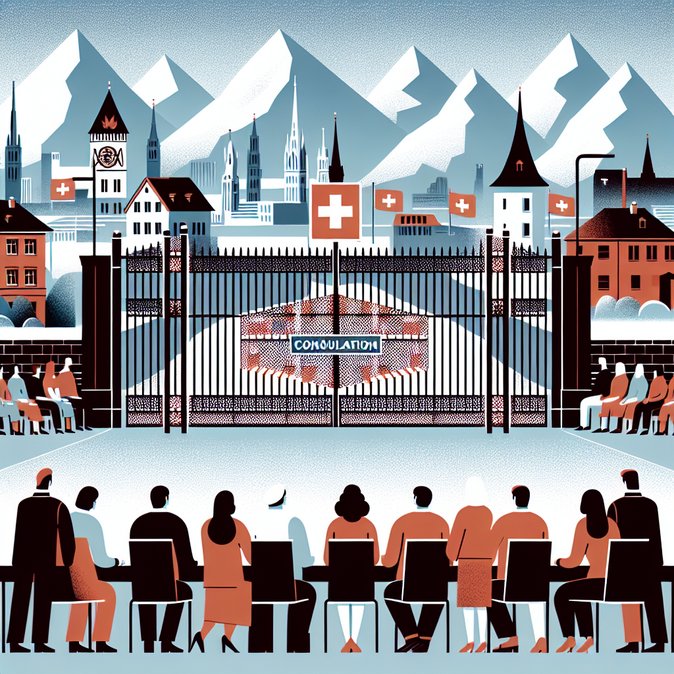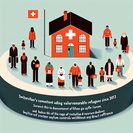
In a bid to tighten Switzerland’s asylum regime, the Federal Council has proposed a far-reaching ban on most foreign travel by people who are still in the asylum procedure or whose request for protection has been accepted only provisionally. The draft ordinance, published on 22 October and reported on 24 October, would allow trips abroad only in narrowly-defined humanitarian emergencies—such as the death or grave illness of a close relative—or for up to 30 days to prepare a voluntary return. All other leisure or business trips to home countries or to other Schengen states would require individual authorisation that will now be much harder to obtain.
The measure answers long-standing pressure from parliament, which already in 2021 demanded that asylum travellers be curtailed after cases of Eritrean and Afghan refugees taking holidays in their countries of origin caused political uproar. The government argues a blanket travel ban will curb abuse, improve credibility of the asylum system and reduce administrative workload for cantonal migration offices. Ukrainian refugees under the special “S-status” will remain exempt and may continue to travel within Schengen for up to 15 days every six months.
If adopted after the four-month consultation, the regulation will oblige the 26 cantons to adapt their procedures and upgrade IT systems to flag unauthorised departures at the border. Airlines and rail operators are expected to see a minor drop in ticket sales, while employers that send staff on foreign assignments will have to re-check employees’ residence status carefully. Companies that frequently recruit from Switzerland’s asylum talent pool—especially in hospitality, agriculture and logistics—will need clearer HR policies and advance planning for business trips.
For multinational organisations, the proposal is another signal that Switzerland is moving closer to the more restrictive stance seen in neighbouring Germany and Austria. Mobility managers should brief relocating staff about the new rules early, double-check whether humanitarian exemptions apply, and include buffer time for obtaining permissions. Failure to comply could lead to revocation of benefits or loss of status, jeopardising long-term residence plans.
The measure answers long-standing pressure from parliament, which already in 2021 demanded that asylum travellers be curtailed after cases of Eritrean and Afghan refugees taking holidays in their countries of origin caused political uproar. The government argues a blanket travel ban will curb abuse, improve credibility of the asylum system and reduce administrative workload for cantonal migration offices. Ukrainian refugees under the special “S-status” will remain exempt and may continue to travel within Schengen for up to 15 days every six months.
If adopted after the four-month consultation, the regulation will oblige the 26 cantons to adapt their procedures and upgrade IT systems to flag unauthorised departures at the border. Airlines and rail operators are expected to see a minor drop in ticket sales, while employers that send staff on foreign assignments will have to re-check employees’ residence status carefully. Companies that frequently recruit from Switzerland’s asylum talent pool—especially in hospitality, agriculture and logistics—will need clearer HR policies and advance planning for business trips.
For multinational organisations, the proposal is another signal that Switzerland is moving closer to the more restrictive stance seen in neighbouring Germany and Austria. Mobility managers should brief relocating staff about the new rules early, double-check whether humanitarian exemptions apply, and include buffer time for obtaining permissions. Failure to comply could lead to revocation of benefits or loss of status, jeopardising long-term residence plans.







